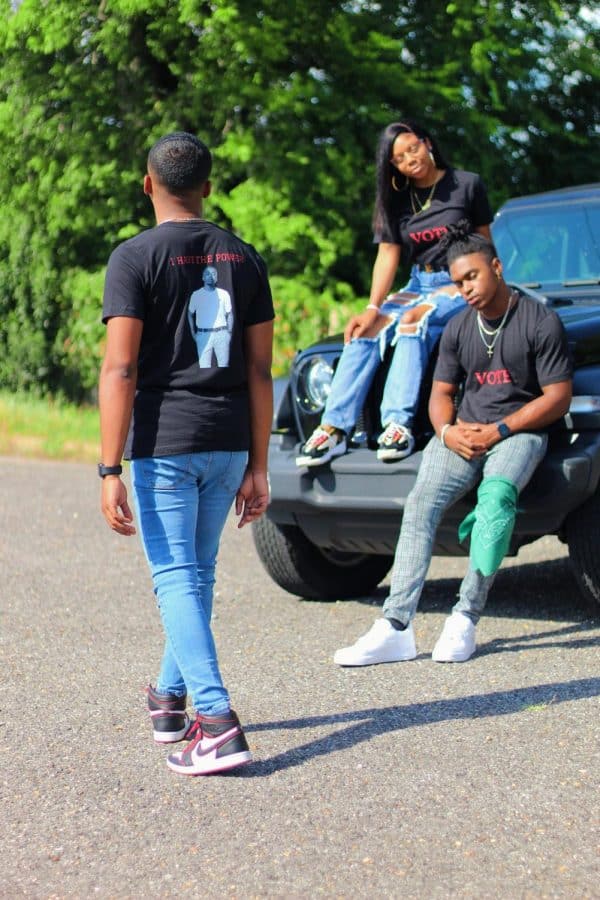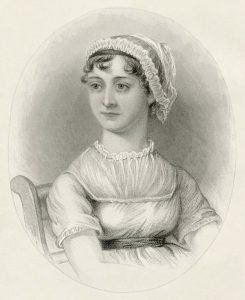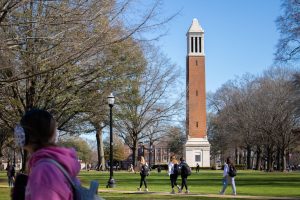Opinion | Change Starts With Us; Vote
September 30, 2020
The vote is one of the most precious tools that we have as citizens of the United States of America. In fact, Dr. Martin Luther King Jr. made it his central theme at the Prayer Pilgrimage for Freedom in Washington D.C. in the spring of 1957.
“Give us the ballot, and we will no longer have to worry the federal government about our basic rights,” King said. “Give us the ballot, and we will no longer plead to the federal government for passage of an anti-lynching law; we will by the power of our vote write the law on the statute books of the South and bring an end to the dastardly acts of the hooded perpetrators of violence.
“Give us the ballot, and we will transform the salient misdeeds of bloodthirsty mobs into the calculated good deeds of orderly citizens. Give us the ballot, and we will fill our legislative halls with men of goodwill and send to the sacred halls of Congressmen who will not sign a ‘Southern Manifesto’ because of their devotion to the manifesto of justice.
“Give us the ballot, and we will place judges on the benches of the South who will do justly and love mercy, and we will place at the head of the southern states governors who will, who have felt not only the tang of the human, but the glow of the Divine. Give us the ballot, and we will quietly and nonviolently, without rancor or bitterness, implement the Supreme Court’s (Brown) decision of May seventeenth, 1954.”
As my advanced placement U.S. history teacher said in the foreword of my book “Generation Z; The Sleeping Giant Awakens….We Have The Power,” “Those words spoken 62 years ago have never rung louder and truer than they do at this moment in history.”
Let’s remember that the right to vote was not always a given to every American citizen. A walk down American history lane reveals these facts about voting:
In 1789, the only Americans who possessed the right to vote were land-owning, white males.
The 15th amendment, which granted African American males the right to vote, was not passed until the year 1870.
Before the 19th amendment was passed, which gave 26 million adult females the right to vote, most women in the United States were legally disqualified from casting their ballot.
Even after the passage of the 19th amendment, full electoral equality was still decades away for many women of color.
It was not until the passage of the 1965 Voting Rights Act that the right to vote included not only the right to vote for African American males, but for other minority groups as well.
The upcoming Nov. 3 election is the most important election of our lifetime. We have a little over a month to change the course of our history, and if we make the wrong choice the impact will be felt not just for the next four years but for generations to come. Democracy as we know it today will cease to exist.
If you are not sure you are registered to vote and want to check your registration status, you can visit vote.org, whenweallvote.org and rockthevote.org. Ignorance is not bliss, especially in this age of social media. Let’s do our part and engage in the necessary good trouble that is needed to salvage the good that remains in this country. It is bigger than us, but it starts with us.
Shanaya Daughtrey is a sophomore at The University of Alabama majoring in political science. She is the author of “Generation Z: The Sleeping Giant Awakens…We Have The Power!” the voice of the podcast entitled “The Tales of Two America’s on Spotify and organizer” of the blog “Gen Z We Have The Power.” You can find links to her work and customized election merchandise at We Are Gen Z.










